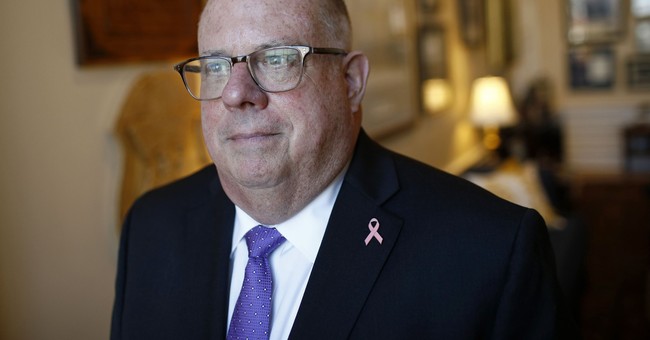We’re witnessing something rather unique in terms of lawsuits involving federal funding. In general, whenever the federal government appropriates money to be made available to the states for any reason, the states will quickly line up to grab their share and vacuum up every penny. This is particularly true if there’s an opportunity to hand money out to the voters since everyone loves “free money” and it tends to benefit the elected officials giving it out.
But now we have a state going to court to claim the right to not take the cash. Hogan’s argument is fairly simple. He’s saying that there are a record number of job openings in Maryland and employers can’t find enough workers to fill them all. Part of the reason for that is the unusually high unemployment benefits many are receiving over a far longer period of time than would normally be possible. Ending the federal enhancements would tempt more people to get back to work. He also notes that normal unemployment benefits without the federal enhancements will remain available.
Thus far, the attorneys for the plaintiffs don’t seem to have identified the specific portions of state laws or the constitution that require the state to “maximize the use of federal assistance programs.” Perhaps that can be inferred from some passages even if it’s not explicitly stated in that language. But is that close enough? It seems as if there is a difference between regularly contracted federal payments to the state and emergency funds that are “made available” for states that wish to apply for them. Hogan’s case appears to ride on the argument that if he doesn’t ask for the money, the remaining funds simply stay in Washington.
This should be an interesting case to keep an eye on. Instead of battling over ways to suck up as much taxpayer money as possible, we’re watching a state government fight for the right to shut off the spigot. Even if Hogan prevails, I get the impression that this isn’t a precedent that will be invoked very often.
But now we have a state going to court to claim the right to not take the cash. Hogan’s argument is fairly simple. He’s saying that there are a record number of job openings in Maryland and employers can’t find enough workers to fill them all. Part of the reason for that is the unusually high unemployment benefits many are receiving over a far longer period of time than would normally be possible. Ending the federal enhancements would tempt more people to get back to work. He also notes that normal unemployment benefits without the federal enhancements will remain available.
Thus far, the attorneys for the plaintiffs don’t seem to have identified the specific portions of state laws or the constitution that require the state to “maximize the use of federal assistance programs.” Perhaps that can be inferred from some passages even if it’s not explicitly stated in that language. But is that close enough? It seems as if there is a difference between regularly contracted federal payments to the state and emergency funds that are “made available” for states that wish to apply for them. Hogan’s case appears to ride on the argument that if he doesn’t ask for the money, the remaining funds simply stay in Washington.
This should be an interesting case to keep an eye on. Instead of battling over ways to suck up as much taxpayer money as possible, we’re watching a state government fight for the right to shut off the spigot. Even if Hogan prevails, I get the impression that this isn’t a precedent that will be invoked very often.





